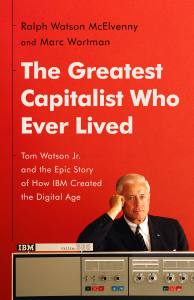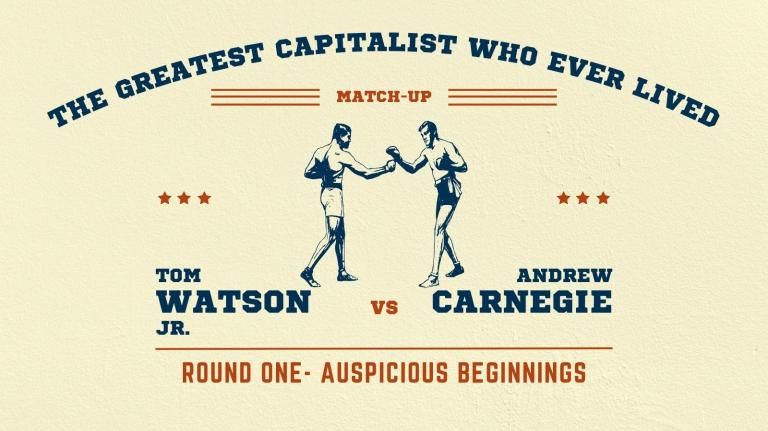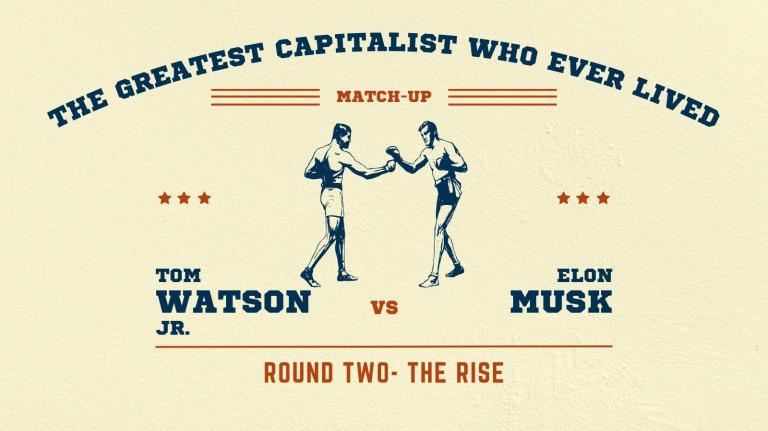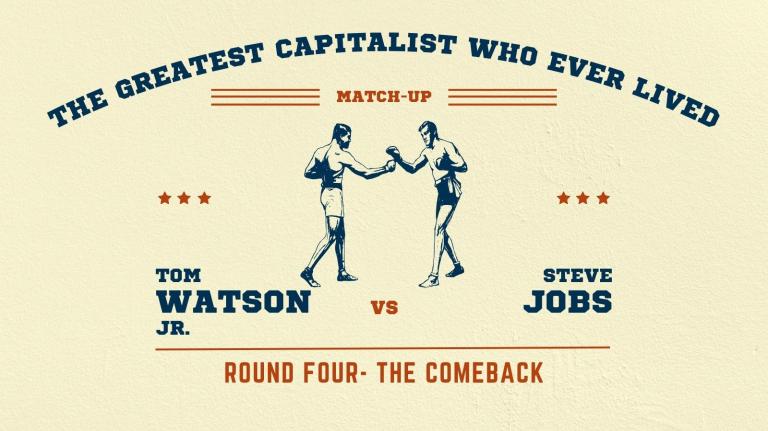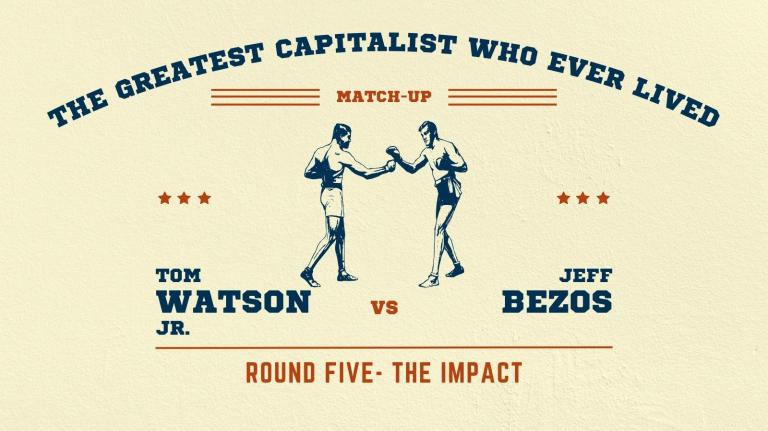The Greatest Capitalist Match-Up Round 3: The Gamble
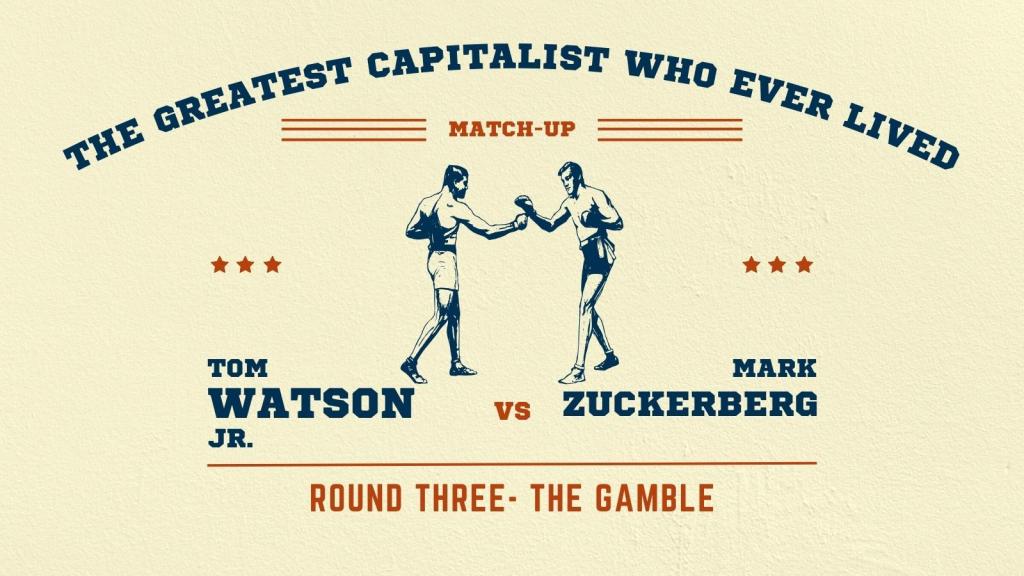
In their latest book, Ralph Watson McElvenny and Marc Wortman explore a bold argument: that Thomas J. Watson Jr., the second president of IBM, was the greatest capitalist who ever lived. McElvenny, the oldest grandson of Watson, and Wortman, an independent historian and freelance journalist, chronicle how Watson undertook the “biggest gamble in business history” and ultimately laid the foundation for the information revolution.
The Greatest Capitalist Who Ever Lived: Tom Watson Jr. and the Epic Story of How IBM Created the Digital Age makes a powerful case, but is it accurate? To find out, we’re stacking Watson up against some of history’s greatest titans of industry. In this five-part mini-series, he’ll compete against Tesla founder and X CEO Elon Musk, Carnegie Steel founder Andrew Carnegie, Amazon founder Jeff Bezos, Apple co-founder Steve Jobs, and Facebook founder Mark Zuckerberg.
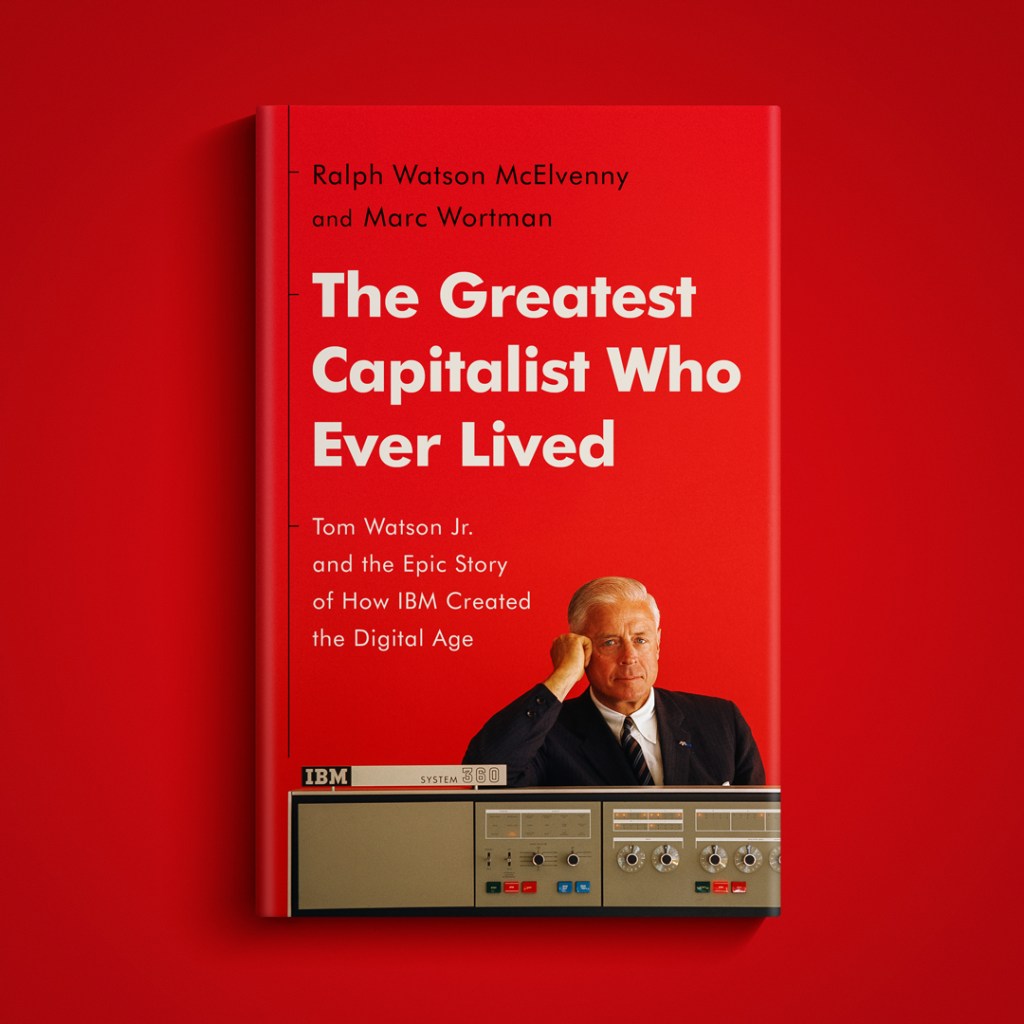
On Monday, we pitted Watson’s terror-to-titan childhood up against Andrew Carnegie’s rags-to-riches. Yesterday, Watson went toe-to-toe with Elon Musk to decide who had the most impressive rise to fame. Today, we’re examining another critical part of the great man story — the risks he was willing to take — by comparing Watson and Zuckerberg.
Contender #1: Watson
In the 1960s, computers had an unavoidable limitation: One type couldn’t comprehend or communicate with any other, let alone with printers, memory and storage systems, or consoles not specifically designed for it. If a company wanted to upgrade its equipment, then, not only did it have to buy an entirely new system, but it had to train its staff on the new equipment as well. Watson envisioned a mainframe machine that would be fully compatible with all other IBM products, along with plug-in peripheral devices. This idea, which seems so obvious in retrospect, jeopardized the company’s very existence.
As McElvenny and Watson write, “In effect, IBM was replacing a prop airplane’s motor with a jet engine while also changing its wings and instrument panel and doing it while in midair. If the 360 flopped, as some industry observers and even internal critics predicted it would, the IBM jet would crash.” When Watson announced the new System/360 to the press, the models he exhibited were made of plywood and painted to look like computers but literally hollow. The operating system was years from being developed, and the necessary surgical-room-clean factories were still under construction. To make good on its promises, the company still needed to hire and staff 50,000 employees.
In the end, the two-year-plus struggle to get the System/360 out the door would nearly break IBM.
Contender #2: Zuckerberg
Sometimes, the biggest gamble in business is staying too long at the fair. That easily could’ve been the case for Zuckerberg, whose initial social media site, “FaceMash,” soon became Facebook and attracted the attention of major corporations with offers to match.
Google offered to buy or partner with Zuckerberg in the summer of 2004, Viacom offered $75 million in March 2005, Myspace wanted to buy in spring 2005, and News Corp (Myspace’s parent company) wanted to in January 2006. That same year, Viacom again made an offer of $1.5 billion, Yahoo offered $1 billion in June 2006, and finally Google offered $15 billion in 2007. Zuckerberg turned down every offer and has transformed Facebook into Meta, a conglomerate that also controls Facebook, Instagram, Threads, and WhatsApp. It is worth roughly $784 billion.
The Decision: Watson. While Zuckerberg showed true commitment by refusing to sell, he never made the kind of existential, all-or-nothing decision that Watson did.
The Score: Watson – 2, Other Capitalists – 1
